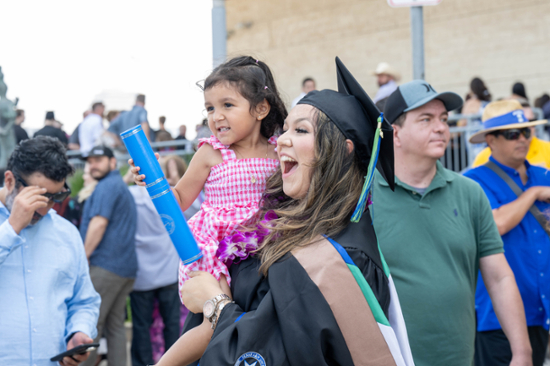Linguistic Society Honors TAMU-CC’s Colleen Fitzgerald as Fellow for Her Work with Indigenous Languages
The society announced the selection earlier this year of nine of the field’s leading linguists as Fellows. Fitzgerald is joined by colleagues from Rutgers University, the University of Texas, the University of Arizona, and others.
Keren Rice is a Fellow of the LSA and someone who has written extensively on community-based research and ethics of fieldwork.
“I have had the fortune to work with Colleen on many projects over the years,” Rice said. “Colleen is a person who has really made a difference in her work with speakers and learners of Indigenous languages. Her ability to listen to what communities are asking for, to think about what kinds of actions might be helpful, and to guide people to do their best – she inspires people with her thoughts and actions, and she has played a significant role in creating today’s positive attitude toward Indigenous languages. We are very fortunate to have someone with her vision, her passion, and her ability to get things done involved in this work. Colleen is truly deserving of this honor: she exemplifies Indigenous language activism at its very best.”
Fitzgerald joined Texas A&M-Corpus Christi in 2019. Previously, she was the program director for the Documenting Endangered Languages Program for the National Science Foundation’s Social, Behavioral, and Economic Sciences Directorate, on loan from the University of Texas Arlington, from 2015-2019.
Among academic appointments dating back to 1996, Fitzgerald was professor of linguistics and director of the Native American Languages Lab in the Department of Linguistics and TESOL at UT Arlington from 2011-2019.
“My work with Native American language communities and documenting and revitalizing and supporting Native American community efforts to reclaim their language includes directing a major language documentation and revitalization institute at UT Arlington in 2014," Fitzgerald said. "In collaboration with Joshua Hinson, I have an ongoing research collaboration that’s community driven, working with the Chickasaw Nation in Oklahoma. The approach has been to use my linguistic knowledge of languages and investigate those languages but also to support mobilizing that knowledge into ways that the Chickasaw and other communities can successfully support their language reclamation efforts.”
Fitzgerald said unlike world languages like Spanish, French, and German, which have a robust teaching tradition and extensive support materials, Native American languages and languages spoken in smaller communities don’t often have those resources for teachers. Such languages also are not as well understood, linguistically.
“You have both the challenge of not having the materials and appropriate pedagogies but you also have the challenge of not knowing as much about those languages, which are significantly different from English,” Fitzgerald said. “Part of my work is also looking at pronunciation and what we need to know to support efforts to learn and teach Indigenous languages of the Americas, which have really different sound systems.”
Such languages may have consonants not found in English and different speech patterns unfamiliar to an English-speaker, said Fitzgerald, whose primary focus has been with speakers of Indigenous languages in Arizona and Oklahoma.
Fitzgerald’s fascination with linguistics began with an immersion into the study of languages. In college, she initially focused on French, German, Russian, and even a course in Ancient Greek.
“I just really enjoyed learning languages and then I stumbled into a sociolinguistics class where I realized I was more interested in language patterns rather than specific languages,” she said.
In addition to the focus on the mechanics of language and linguistics, Fitzgerald has found great satisfaction in the relationships that have developed as a result of the work.
“I am a field linguist and there are communities I’ve worked with for a very long time,” she said. “It's crucial in this work to be relationship-oriented, and those relationships guide me in in all the work that I do.”
Fitzgerald said she has been at conferences where there were very few Native American linguists and she is sometimes in the position of making sure that Native Americans’ beliefs about language or the ways they want to handle their language recordings are properly represented.
“To be the voice of those who aren’t able to be in that room is quite an honor as well as a responsibility,” she said.
When Fitzgerald was at the National Science Foundation and in some training workshops, she was able to fund initiatives to help broaden the participation of Native Americans in linguistics and also broaden linguistics by bringing in those perspectives.
“I think we see when science is diverse, diverse questions are asked and different knowledge is gained and if you can empower people from those diverse groups to ask their own questions you just open up the world so much in terms of what we know,” she said.
With decades of work accomplished and more projects on the horizon, Fitzgerald said being selected as a Fellow is particularly rewarding.
“I’m incredibly honored,” she said. “It’s very meaningful when your colleagues in your chosen discipline have selected you for an accolade like that.”
Fitzgerald has been a member of LSA since around 1991, when she started graduate school.
The Fellows are selected by the at-large members of LSA’s Executive Committee from among the nominations submitted by LSA members for their distinguished contributions to the discipline.





